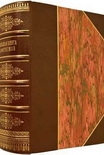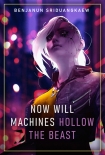Shall Machines Divide the Earth by Benjanun Sriduangkaew (classic novels to read .txt) 📗

- Author: Benjanun Sriduangkaew
Book online «Shall Machines Divide the Earth by Benjanun Sriduangkaew (classic novels to read .txt) 📗». Author Benjanun Sriduangkaew
The residential blocks here are ramshackle, tall narrow buildings bent by time and corrosive elements. Uneven layers of bitumen coat the roofs. Doors are latched shut by bolts or the rare biometric lock, but by and large anyone can pass through. I don’t call ahead: the person I want doesn’t have the implants necessary for overlays. Has had them excised long ago, unless something’s changed.
Stepping into this building exposes an unpleasant truth. The Vimana is lavish, contemporary and sanitized. The floor of this place has borne witness to accrued strata of filth, dried blood and effluvia from plumbing failures. Its walls are pockmarked by wear and tear, by sudden violence.
I knock on a door that is better reinforced than most. It opens just a fraction; I’m let in and the door shuts immediately, as though to prevent the conditioned air inside from escaping. The room’s sole resident double-locks the door, bolting then securing it with a matrix that looks several generations out of date.
“Detective.” He attempts a stiff smile. “It’s been a minute.”
“You look well,” I say, though he doesn’t.
He’s thinner than I remember, loose-skinned, a wattle trembling beneath his chin. Pale to the point of gray, cheeks receded to the outline of his skull. His nose juts oddly as though it belongs to a much more dignified, patrician face. Bulging eyes that always seem afflicted by fundamental tragedy, hair the color of acid-blanched bricks. When he seats himself he does so gingerly, as though he thinks any moment the furniture might turn against him and swallow him whole. His name is Ostrich, the English word for a type of flightless bird—I’ve looked it up; strange-looking creature. When I first heard it, I thought his name sounded vaguely Germanic. In truth he came from the Catania Protectorate, so the name his parents or government gave him was likelier to be Italian. Giovanni or Giovanna or such; I’m not familiar either way.
“I’ve been worse.” Ostrich crosses his legs, uncrosses them, rearranges them and settles with them akimbo. “Didn’t expect to see you here. Didn’t expect visitors. Septet—terrible place. How’s your wife?”
“We divorced.” I don’t add that Eurydice is dead. Has been for eight years.
“Oh.” He inclines his head awkwardly. “My condolences. Eurydice was a lovely lady.”
She was more than that; she was resplendent and she was the world. But I’m not here to wax nostalgic about my ex-wife with him when he barely knew her. I hold up a card I’ve loaded with a tidy sum. More than he earns here in a month, by my estimate. “Tell me everything you know about the Court of Divide.”
“You really don’t do pleasantries.”
“I do them perfectly well with attractive women.” I give him a half-shrug. “I can ask after your health, if you like.”
He eyes the card. Estimating and speculating how much is in there. The disadvantage of having no overlays. “You wouldn’t care anyway. Are you here for the—because of what happened to Ayothaya?”
“I have a feeling,” I say blandly, “that what happened will be the only thing people know about Ayothaya for several generations.”
Those first bombardments, that first monstrous contact when the Hellenic army fell down upon us like ravening beasts. The Javelin of Hellenes is a polity that fancies themselves a nation of warriors and has been known to strike almost randomly, without cause or warning. Still, they pretended at honor, at heeding humane rules of engagement: no targeting of civil centers, medical institutions, aid stations. Who can complain? Plenty of armies would have done much worse. We could have been sacked by the Armada of Amaryllis.
The entire event—I can think of it with distance, now.
I angle the card this way and that, watching it glint, watching it catch Ostrich’s eye. “The invasion is someone else’s business—I’m here for a different reason, and I’m a little offended you would assume. My interest in Septet could be academic. Just because I look like a brute doesn’t mean I cannot pursue intellectual passions.”
Ostrich knows better than to scoff. Instead he moves stiffly to a filing cabinet. Even before the invasion, he was an unusual man: partial to antique means of recording, pen and paper, ink and lamination; even a few nielloware plates that he etched himself. Despite the distance he’s put between his present and former lives, he keeps mementos of his heritage and faith. Crucifixes of various sizes stand in his room, some empty and others burdened by the bleeding messiah. Statuettes of the virgin mother (now possible with womb-tanks; likely impossible during the prehistory of his religious apocrypha) either carrying her dead son or draped in garlands.
I lean against the wall, steering clear of the delicate statuettes. Wherever I go, I intrude upon fragile things. Lovers have ever told me I’m a creature of rough edges, rough strength, like an avalanche.
He produces a folder—an actual folder, plastic and aluminum, holding within it a wealth of papers. “Here.”
Ostrich’s pastime is sociology, and when I learned where he disappeared to, I understood his reason immediately—not just that Septet is out of the way and digitally isolated, but because it is a unique world. Constructed entirely to host the Court of Divide, yet not to function as an integrated state like Shenzhen. Instead it is more of a colony, and not a favored one.
Many of his notes are on the sociopolitical impact on the population, on how even the most basic elements of the tournament affect everyday life, transforming Septet into an economy of savage needs and carnivorous prices. There is rarely a lull between rounds—as soon as a victor is declared and infrastructure has been repaired, the next one begins immediately. Human residents amount to less than ten million, which makes this





Comments (0)